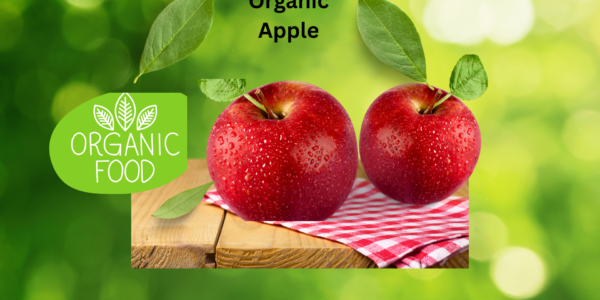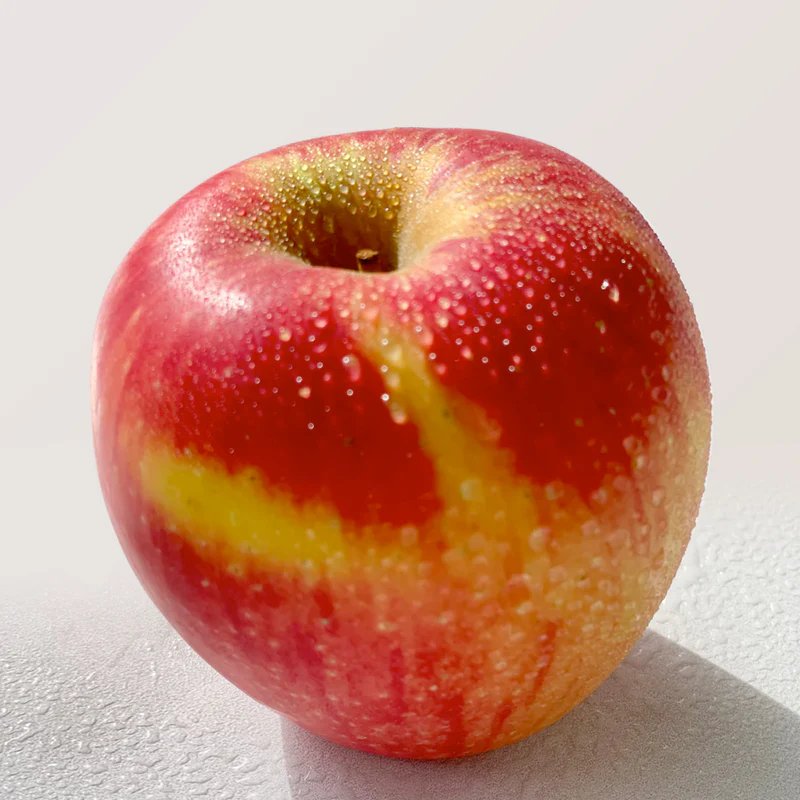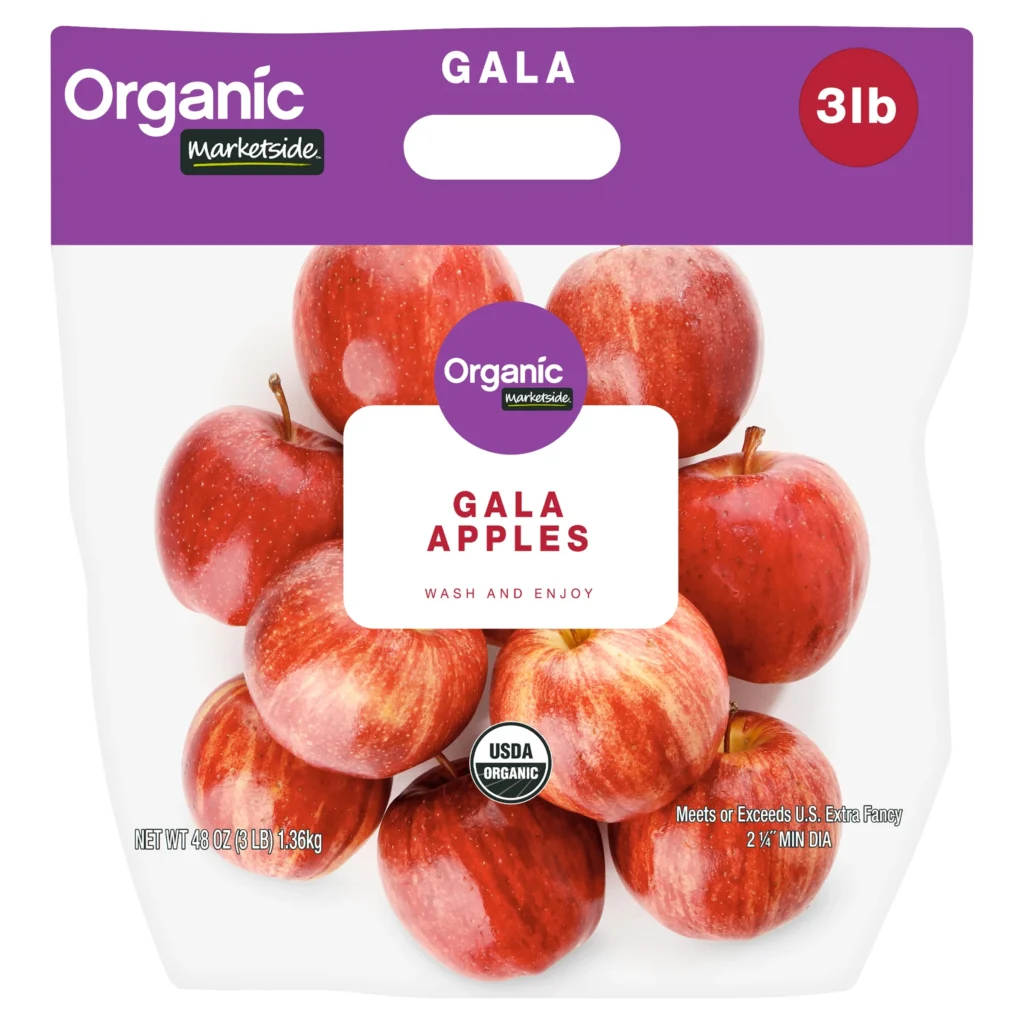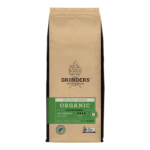Organic Apple: The Health Benefits You Need to Know

Organic apples are grown without synthetic pesticides or fertilizers. Organic Apple is healthier and better for the environment.
Choosing organic apples supports farmers dedicated to eco-friendly methods, ensuring a healthier planet. With their superior taste and health benefits, organic apples are a smart choice for anyone looking to improve their diet and support sustainable agriculture.
Introduction To Organic Apple
Organic apples have become a popular choice for many health-conscious consumers. They are grown without synthetic pesticides or fertilizers, making them a cleaner option.
What Makes An Apple Organic
Organic apple must meet specific criteria to earn their label. They are grown in orchards that avoid synthetic chemicals. Farmers use natural methods like compost and crop rotation.
Organic farming focuses on sustainability and environmental health. It aims to improve soil quality and reduce pollution.
Organic certification requires strict adherence to guidelines. Regular inspections ensure compliance with these standards.
Difference Between Organic Apple And Conventional Apple
| Aspect | Organic Apple | Conventional Apples |
|---|---|---|
| Farming Methods | Natural pesticides, no synthetic chemicals | Use of synthetic pesticides and fertilizers |
| Soil Health | Focus on soil sustainability | May degrade soil quality |
| Environmental Impact | Lower pollution and better biodiversity | Higher pollution and reduced biodiversity |
| Certification | Requires strict adherence to organic standards | No specific certification needed |
Organic apples usually have fewer pesticide residues. They are often fresher and more flavorful. Conventional apples, on the other hand, may have more pesticides. They often look more uniform and shiny.
Choosing organic apple supports sustainable farming practices. It promotes a healthier environment and a more nutritious diet.

Nutritional Profile
Organic apples are not just delicious; they are also packed with nutrients. They offer a range of vitamins, minerals, and antioxidants. Let’s dive into their nutritional profile.
Vitamins And Minerals of Organic Apple
Organic apples are rich in essential vitamins and minerals. Here’s a breakdown:
| Vitamin/Mineral | Amount per 100g | Daily Value (%) |
|---|---|---|
| Vitamin C | 4.6 mg | 8% |
| Vitamin A | 54 IU | 1% |
| Potassium | 107 mg | 3% |
| Fiber | 2.4 g | 10% |
Vitamin C boosts the immune system. Vitamin A supports good vision. Potassium helps maintain healthy blood pressure. Fiber aids digestion and promotes a healthy gut.
Antioxidant Properties of Organic Apple
Organic apples contain powerful antioxidants. These include flavonoids and polyphenols.
- Quercetin: Reduces inflammation and protects cells from damage.
- Chlorogenic Acid: Helps regulate blood sugar levels.
- Epicatechin: Improves heart health.
Antioxidants protect your body from harmful free radicals. They reduce the risk of chronic diseases. Eating organic apples regularly can improve overall health.
Health Benefits of Organic Apple
Organic apples are not only delicious but also packed with nutrients. They offer numerous health benefits that can help you stay healthy and vibrant. Below, we explore some of the key health benefits of consuming organic apples.
Boosting Immunity
Eating organic apples can help boost your immune system. They are rich in vitamin C, which is known to enhance immune function. This vitamin helps your body fight off infections and illnesses. Organic apples also contain antioxidants that protect your cells from damage.
- High in Vitamin C
- Rich in antioxidants
- Helps fight infections
Improving Heart Health
Organic apples are great for your heart. They contain soluble fiber, which can help lower bad cholesterol levels. This fiber also helps regulate blood sugar levels, which is important for heart health. Organic apples are also rich in potassium, which can help reduce blood pressure.
| Nutrient | Benefit |
|---|---|
| Soluble Fiber | Lowers bad cholesterol |
| Potassium | Reduces blood pressure |
By including organic apples in your diet, you can enjoy a healthier heart and a stronger immune system. These tasty fruits are an easy and delicious way to support your overall well-being.

Weight Management
Weight Management is crucial for overall health. Choosing the right snacks can make a big difference. Organic apples are an excellent option for weight management. They are packed with nutrients, low in calories, and can boost metabolism.
Low Calorie Snack
Organic apples are a perfect low calorie snack. A medium-sized apple has about 95 calories. They are filling and satisfy hunger without adding many calories. Apples are rich in fiber, which helps you feel full longer.
- One medium apple: 95 calories
- High in dietary fiber
- Zero fat and cholesterol
Enhancing Metabolism
Apples can help in enhancing metabolism. They contain polyphenols, which boost fat burning. Apples also have a high water content, aiding hydration and metabolism.
| Nutrient | Benefit |
|---|---|
| Polyphenols | Boost fat burning |
| Water | Improves hydration and metabolism |
Eating apples regularly can support your weight management goals. They are delicious, nutritious, and easy to carry. Make apples a part of your daily diet for better health and weight management.
Digestive Health
Apples are not just delicious; they are also great for digestive health. Eating organic apples can significantly boost your digestive system. Let’s explore how organic apples contribute to digestive health.
Rich In Fiber
Organic apples are rich in fiber, which is essential for a healthy digestive system. A medium-sized apple contains about 4 grams of dietary fiber. This fiber helps in softening stool and preventing constipation.
Fiber also aids in weight management. It makes you feel full longer. This can help in reducing overall calorie intake.
| Nutrient | Amount per Medium Apple |
|---|---|
| Dietary Fiber | 4 grams |
Supporting Gut Health
The fiber in organic apples acts as a prebiotic. This means it feeds the good bacteria in your gut. A healthy gut microbiome is crucial for overall health.
Organic apples contain pectin, a type of fiber that is particularly beneficial. Pectin helps in increasing the number of good bacteria in your gut. This can lead to improved digestion and nutrient absorption.
- Feeds good bacteria
- Improves digestion
- Enhances nutrient absorption
Make organic apples a part of your daily diet. They are a simple, tasty way to support your digestive health.

Skin Health
Organic apples are a powerhouse of nutrients that benefit the skin. Consuming them regularly can help enhance your skin’s appearance and overall health.
Promoting Clear Skin
Organic apples contain high levels of vitamin C, which aids in collagen production. Collagen is essential for maintaining the skin’s elasticity and structure. This helps in reducing acne and blemishes.
Free radicals can damage skin cells, leading to breakouts and dullness. By neutralizing these harmful molecules, organic apples help keep your skin clear and radiant. Fiber helps in detoxifying the body, which in turn promotes healthier skin.
Anti-aging Benefits of Organic Apple
Organic apples are packed with polyphenols and flavonoids. These compounds have strong anti-aging properties. They protect the skin from damage caused by UV rays and environmental pollutants.
The vitamin E found in organic apples helps in reducing the appearance of fine lines and wrinkles. It also enhances the skin’s moisture retention, keeping it hydrated and supple.
Moreover, organic apples are a good source of vitamin A, Vitamin A accelerates cell turnover, which helps in shedding old skin cells and generating new ones. This keeps the skin looking youthful and vibrant.
| Benefit | Nutrient |
|---|---|
| Promoting Clear Skin | Vitamin C, Antioxidants, Fiber |
| Anti-Aging Benefits | Polyphenols, Flavonoids, Vitamin E, Vitamin A |
Incorporating organic apples into your daily diet is simple. You can eat them as a snack, add them to salads, or blend them into smoothies.
Detoxification
Detoxification is crucial for maintaining a healthy body. Organic apples offer natural detox benefits. They help cleanse the liver and eliminate toxins.
Natural Detox Agents
Organic apples contain powerful natural detox agents. These agents include dietary fiber, vitamins, and antioxidants.
- Dietary fiber: Helps remove toxins from the digestive system.
- Vitamins: Boost overall health and support the detox process.
- Antioxidants: Fight free radicals and reduce oxidative stress.
Cleansing The Liver
The liver is the body’s main detox organ. Organic apples support liver health and function.
- High in pectin: Pectin helps cleanse and detoxify the liver.
- Improves bile production: Apples aid in bile production, which helps the liver eliminate toxins.
- Reduces inflammation: Antioxidants in apples reduce liver inflammation.
Consuming organic apples regularly can be highly beneficial. They help in maintaining a clean and healthy liver. Include them in your diet for effective detoxification.
Incorporating Organic Apple
Organic apples offer a delicious and healthy addition to your diet. They are free from harmful pesticides, making them a safer choice. Below, explore some practical tips and easy recipes to enjoy these nutritious fruits.
Daily Diet Tips
- Start your day: Add sliced organic apples to your morning oatmeal.
- Snack time: Enjoy apple slices with almond butter for a quick snack.
- Salad boost: Toss apple chunks into your green salads for a sweet crunch.
- Hydration: Infuse water with apple slices and a hint of cinnamon.
- Breakfast bowls: Combine apples with yogurt, granola, and honey.
Easy Recipes
- Apple Smoothie:
- 1 organic apple, cored and sliced
- 1 banana
- 1 cup spinach
- 1 cup almond milk
- 1 tablespoon chia seeds
Blend all ingredients until smooth and enjoy your healthy smoothie.
- Baked Apples:
- 4 organic apples
- 1/4 cup chopped nuts
- 1/4 cup raisins
- 1 teaspoon cinnamon
- 1 tablespoon honey
Preheat oven to 350°F. Core apples, fill with nuts, raisins, cinnamon, and honey. Bake for 30 minutes.
- Apple Salad:
- 2 organic apples, diced
- 1 cup mixed greens
- 1/4 cup feta cheese
- 1/4 cup walnuts
- 2 tablespoons balsamic vinaigrette
Mix apples, greens, feta, and walnuts. Drizzle with vinaigrette.
Choosing And Storing
d a apple Organic apples are a delicious and healthy choice. They are free from harmful pesticides. To enjoy them fully, you must know how to choose and store them properly. This ensures you get the best flavor and nutrients.
Selecting The Best Apples
Preferred bright-colored ones and avoid apples with bruises or soft spots. These might be overripe or damaged.
- Check the apple’s skin. It should be smooth and shiny.
- Smell the apple. It should have a fresh, sweet aroma.
- Feel the apple. It should feel firm and heavy for its size.
Proper Storage Techniques
To keep your organic apples fresh, store them properly.
Follow these tips for the best results:
- Store apples in the fridge. They stay fresh longer in cool temperatures.
- Keep them in a plastic bag with holes. This maintains humidity and airflow.
- Avoid storing apples near strong-smelling foods. They can absorb odors.
For best results, keep apples at 32-36°F (0-2°C). This temperature range preserves their crispness and flavor.
| Storage Method | Storage Time |
|---|---|
| Room Temperature | 1-2 weeks |
| Refrigerated | 4-6 weeks |
Frequently Asked Questions
What Are The Benefits Of Organic Apples?
Organic apples are free from harmful pesticides and chemicals. They are rich in vitamins, antioxidants, and fiber. Eating organic apples supports a healthier lifestyle.
How Do Organic Apples Differ From Regular Apples?
Organic apples are grown without synthetic pesticides and fertilizers. They are often fresher and have more nutrients. Regular apples may contain pesticide residues.
Are Organic Apples Worth The Extra Cost?
Yes, organic apples are worth the extra cost. They are healthier and safer.
How Should I Store Organic Apples?
Store organic apples in a cool, dark place. Refrigerate them for longer shelf life. Keep them away from strong-smelling foods.
Conclusion of Organic Apple
Enjoy the numerous benefits of organic apples for your health and environment. Choose organic for a healthier lifestyle. Support sustainable farming practices and relish the natural taste. Make organic apples a staple in your diet. Experience the freshness and nutrition they offer.
Your body and the planet will thank you.




Leave a Reply